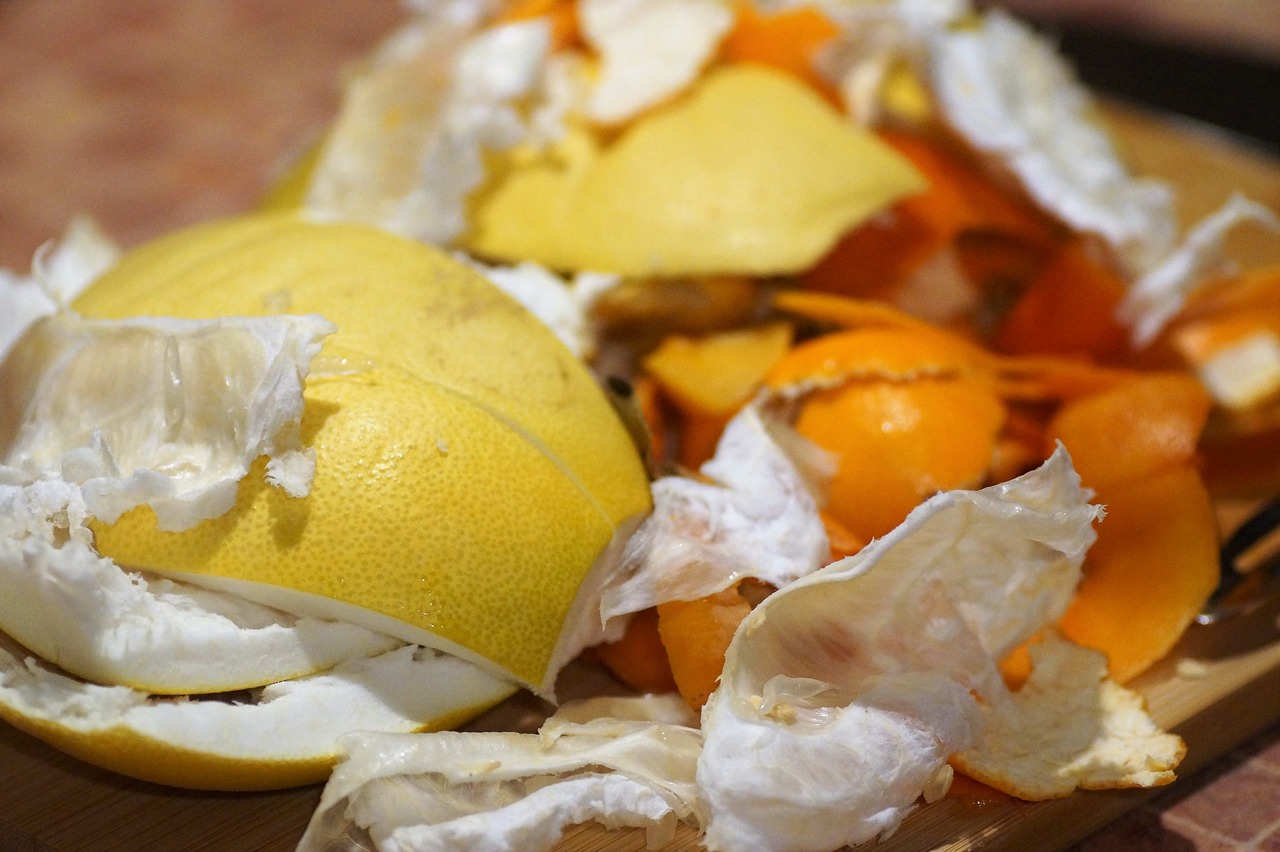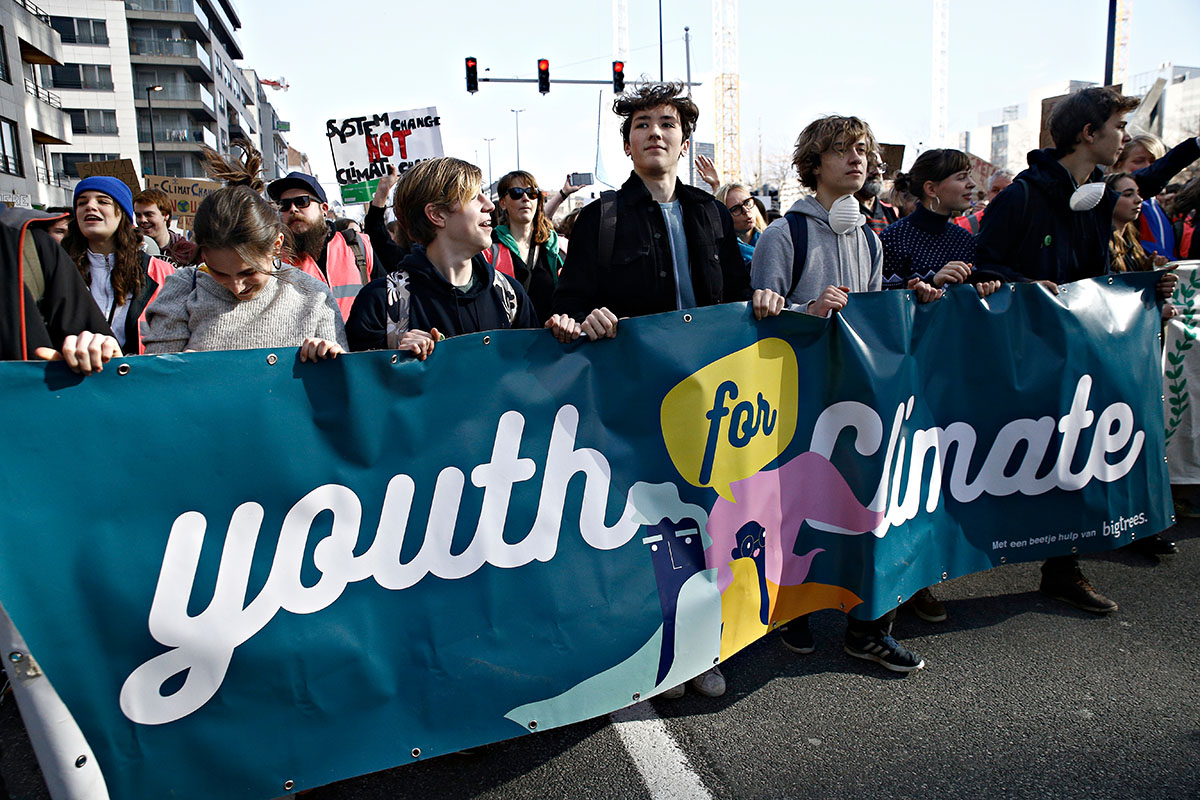One man’s trash, another man’s treasure
April 6
Joshua Ebin from Nigeria was one 16 finalists for this year’s Commonwealth Youth Awards. The 29-year-old is the co-founder of Jumela Ltd., an agro-technology venture that specializes in the production of plant-based compost for crop farmers in Nigeria. Jumela also tackles poor food waste management, pollution problems and low agricultural yield in Africa. Sola Abe, a 28-year-old Commonwealth Correspondent from Lagos State, Nigeria, interviewed Joshua about his initiative.
To date, Jumela has produced two metric tonnes of compost for sale to national clients, while creating jobs for over 25 workers. Joshua is passionate about pushing for the achievement of Sustainable Development Goal (SDG) 12–Responsible Consumption and Production.
Tell us more about your company?
Jumela Limited is an award-winning, emerging Nigerian agro-technology venture that specialises in the development and production of plant-based compost and related novel agro-products that solve food waste pollution, poor soil management issues and low agricultural yield problems.
Jumela’s organic fertilizers are designed to achieve environmental sustainability and higher crop yield performance relative to other fertiliser and organic products in the market.
We are focused on creating and delivering innovative and sustainable products in a world of depleting natural resources coupled with environmental challenges.
What was the inspiration behind the creation of Jumela?
We wanted to create a versatile solution that addresses a range of 21st-century challenges. By recycling organic waste, we hope to reduce refuse collection costs, create an organic soil conditioner and boost food productivity. We can also reduce unemployment, contribute to reducing climate change and create soil-specific organic fertilizers.
Our motivation is to create a value-chain for waste recycling, change people’s recycling habits over time and contribute to environmental sustainability in Africa.
What strategies does your company have in place to tackle food waste in Nigeria?
Our strategic approach involves formulation, implementation, evaluation and feedback and adjustment.
Formulation includes development of a crop growth index, agricultural waste availability index and a rain-fed and irrigation planting index. Our data helps us determine when specific waste such as from boarding schools, hotels and farms will be available.
The implementation component includes food waste collection from the various sources in a way that minimises use of resources to create efficiency. It also includes the management of the conversion process by classifying each batch as low variety-high volume or high volume-low variety.
We compare the project outcomes with actual outcomes of our processes to help us make decisions such as whether to source food waste from a wider range of sources to ensure the supply line is consistent.
The feedback and adjustment phase is essentially the re-formulation of strategy using information we have collected from the evaluation or analysis stage.

How do you plan to solve the problem of low agricultural yield in the country?
We intend to increase yield through a number of channels. Firstly, using compost by producing fit-for-soil and crop fertilizers. For example, on a two-hectare farm dedicated to cultivating two crops like maize and yam, we will formulate two separate blends of fertilizers.
Secondly, we plan to enable year-round cultivation using compost which will eliminate the need for allowing farmlands to fallow.
Finally, continuous research and development will help us determine optimum levels of compost application for higher crop output.
In what ways is your company tackling the challenges of climate change?
Jumela tackles climate changes through the production of components which have several environmental benefits. This includes replenishing soils and enhancing the soil’s ability to stabilize carbon by increasing plant growth. This pulls out more carbon dioxide from the atmosphere.
Compost also helps keep biodegradable waste out of landfills and thus reducing landfills’ contribution to climate change. Compost contributes to climate management by pulling carbon out of the atmosphere and into the soil.
In addition, compost reduces the use of chemical fertilizers, which are inorganic and lead to global warming during the processes of producing, transporting and using them.
What are some of your achievements since inception?
In 2017, Jumela conducted various backyard compost experiments which led to our test customers seeing better crop yield compared to fertilizer.
In December 2018, we delivered a one-minute pitch at the World Bank Youth Summit. We subsequently won the UN Youth Assembly Global Impact Challenge in 2019.
Jumela was registered in Nigeria and began to scale up productions for large-scale clients. We acquired farm land in Kuje in Abuja and purchased equipment and supplies.
This year, I was privileged to be nominated as one of 16 finalists for the Commonwealth Youth Awards from a pool of 500 innovators from 40 countries.
To date, we have produced over two metric tonnes of organic compost and sold over 25 per cent of capacity.
Our immediate next step is to double skilled and unskilled talent, increase sales, gain wider exposure and produce over 10 metric tonnes with over 70 percent selling capacity.
How do you think we can get young people in Nigeria interested in agriculture– and get them to do it right?
With the recent push for diversification of the economy, many young Nigerians are increasingly investing in agricultural sector. This is made possible by advancements in technology and e-commerce. Recent agro-investments are yielding lucrative returns in the short-to mid-term for these young investors.
We can get youths more interested in agriculture by focusing on the innovation link of the agricultural science-technology-innovation value chain.
Jumela prefers to focus on innovation because it is about knowledge creation and diffusion, which are two essential elements for reaching out to the youths.
Once all the activities in the agricultural value chain have been scientifically and technologically modernised (innovated), there will be incremental and radical changes to agricultural products, services, enterprise management methods and marketing approaches.
These developments should be reinforced by setting up innovation networks for the youth which have opportunities for mutual benefit and are action driven.
………………………………………………………………………………………………………………………………………………………
The Commonwealth Youth Awards for Excellence in Development Work highlight the contributions of young people who are making a difference in their communities and celebrate their contributions to the Sustainable Development Goals (SDGs).
…………………………………………………………………………………………………… …………………………………………………
About Sola Abe:I am passionate about calling for a better life for Nigerian women. My vision is to create media content that will inspire, educate and renew the minds of the people.
………………………………………………………………………………………………………………………………………………………
Opinions expressed in this article are those of the author and do not necessarily represent the views of the Commonwealth Youth Programme. Articles are published in a spirit of dialogue, respect and understanding. If you disagree, why not submit a response?
To learn more about becoming a Commonwealth Correspondent please visit: http://www.yourcommonwealth.org/submit-articles/
………………………………………………………………………………………………………………………………………………………






